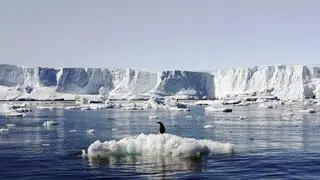It is pretty much a norm in international negotiations that the members of civil society – voluntary organisations and activist groups – be allowed to sit as observers in the room when international negotiations are going on. Thus, it was odd that in the latest round of climate talks in Bonn last week, they were shown the door.
Many, such as Third World Network, Asian Peoples’ Movement on Debt and Development, ActionAid, had their representatives at the UNFCCC headquarters in Bonn to watch negotiators further chew on the draft that would finally be agreed upon by all countries in December. But they were told they could not be in the conference rooms.
The reason, the civil society deduced, was that the developed countries didn’t want to be caught cheating. According to Chee Yoke Ling of the Third World Network, the developed countries were attempting a great escape, avoiding making legally-binding commitments on providing finance to developing countries.
A key element Finance is a key element of the negotiations at COP-21 meeting which is to be held in Paris in December. (COP refers to ‘conference of parties’ to the United Nations Framework Convention on Climate Change.)
By now, some 155 countries (out of the 196 members of UNFCCC) have declared what they would do in terms of reducing greenhouse gas emissions. Estimates of the bill for meeting these commitments vary widely — one puts it at $45 trillion between 2015-2030. A lot of action needs to happen in the developing world (134 countries) which can’t afford it. It is an accepted principle that the rich countries who grew rich by mauling the environment (albeit unwittingly), would make money available so that the developing countries could do things like create more renewable energy plants and buildings that consume less energy.
In 2010, the rich world had agreed that it would pool-in more and more funds to give to developing countries, so that by 2020 the annual contributions to the kitty are not less than $100 billion. Five years down the line, less than $6 billion has been contributed.
The Paris negotiations are for the period beyond 2020, but uncomfortable questions will be raised about the developed world’s bad record in keeping its word. Since that record is so bad, the developing countries want to bring financial pledges inside the agreement, so that (unlike the $100 billion) they become legally-binding.
The rich countries, says Yoke Ling, are trying their best to avoid putting financial commitments within the agreement. As such, they’d rather not be watched by the civil society while they indulge in subterfuge. Hence, “get out of the room”.
The articulate chairperson of the developing world grouping, G-77, Joyce Mxakato-Diseko, who is also the negotiator for South Africa, puts it thus: “Beneath the darkness, where there is no scrutiny of the civil society, they (developed countries) hope that our will be bent so much that that we are tired, we give up and the issue (of finance) is resolved by announcements that are external to the agreement.”
Civil society organisations point to a number of instances that shine a light on the rich countries’ efforts to wriggle out. For instance, the World Bank, which gets most of its funds from the rich countries, says it would provide “potentially $29 billion” a year for climate finance.
But it is a loan, point out civil societies. “I wreck your car and I owe you $1,000, I give you $50 and then say ‘I will give you the rest as loans which you must pay with interest’— it is like that” says Brandon Wu of ActionAid.
Even so, not all of World Bank’s putative climate finance is truly climate-related. It counts railway projects as ‘green’ because they would remove vehicles off the roads. Even some road projects are counted as green, as they make for more efficient transportation.
The rich world is also accused of trying to build favourable atmospherics. Last month the OECD, a rich countries’ club, said that finance mobilised by developed countries for climate action in developing countries reached $ 62 billion in 2014. Now, where did that come from?
“It counts loans that have to be repaid and even credit guarantees,” notes Angolan diplomat Giza Gaspar Martins.
“We don’t know what methodology they followed, they didn’t consult the developing countries,” says Diseko. In any case, OECD is not a party to the Convention, she says.
Compensation needed Developing countries, especially the small island nations, want the agreement to include the compensations for irreversible loss suffered by them due to ravages of climate. The developed countries want ‘loss and damage’ to be addressed separately.
“We are absolutely furious,” says Neolene Nabulivou of Fiji, who works for voluntary organisation Development Alternatives with Women for a New Era (DAWN), “we are not here to negotiate away our rights.”
The G-77+China group has stood solid, spoken in one voice. A G-77 proposal issued in October on finance wants annual targets for developed countries included in the Paris agreement. These financial resources “shall be scaled up from a floor of $100 billion per year from 2020, including a clear burden-sharing formula among them and in line with needs and priorities identified by developing countries” and these resources “shall be provided in a measurable, reportable and verifiable manner. Some observers say the developed world has been surprised by the developing world’s unity this time, indicating tough negotiations ahead. And therefore they didn’t want civil society representatives watching with hawkish eyes.








Comments
Comments have to be in English, and in full sentences. They cannot be abusive or personal. Please abide by our community guidelines for posting your comments.
We have migrated to a new commenting platform. If you are already a registered user of TheHindu Businessline and logged in, you may continue to engage with our articles. If you do not have an account please register and login to post comments. Users can access their older comments by logging into their accounts on Vuukle.